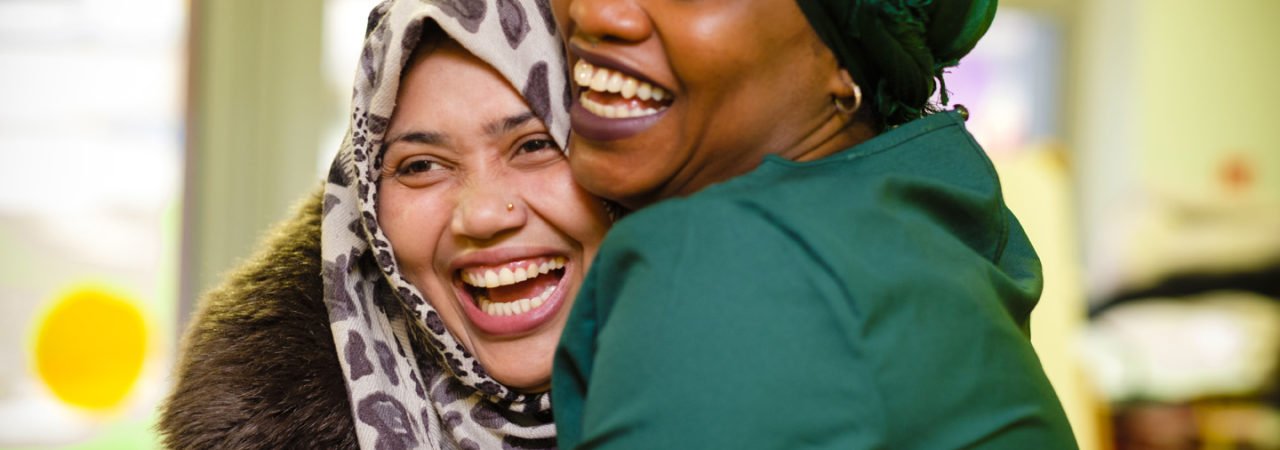Creative English, a programme developed by Dr Anne Smith from our FaithAction team, uses games and roleplay to build confidence in speaking English in everyday situations, such as talking to neighbours, teachers, doctors and landlords. By bringing people together through shared fun, it helps them make friends, find a place of belonging, and become a active member of their local community.
Rohema† first got involved in Creative English in 2018. She had arrived in the UK in 2009.
I think my confidence was so low because I was at home all the time. I didn’t know anyone. I had left my family and friends behind. When I look back, I think I had depression, but I didn’t have a name for it then. When I came to Creative English, that was the turning point, I think. The class was fun. I made friends. It started to build my confidence, I think. I started to go out and do things for myself.
Then the teacher, Nasim†, said I should be a facilitator [to run Creative English sessions]. She said my English was good. I didn’t believe her at first. She got me to help her with the class and I thought, “Okay, I can do this. I am helping people go on the journey I have been on. I can say to them, if I can do it, you can too!“
I enjoyed helping the ladies, seeing them get more confident and go to the doctor or the shop. It’s a big thing when you can sort out a problem yourself and not need someone to do it for you.
That’s when I did the Creative English facilitator training. [The training] was very good; very funny! We found that, although we were from different places, we became friends quickly too. Just like in the Creative English class.
I ran a Creative English group for maybe two years. At first, I did it with Nasim helping me and then with me leading and helping the new facilitator.
Then Nasim talked to me about work. I became a community support worker at the organisation that had helped me. Now, I work for two different charities, helping women with challenges in their lives.
When I look back, none of this would have happened without Creative English. The slogan for Creative English is laugh your way to confident English. I really did laugh my way to a better life!


Theo, Youth Development Worker
Lorem ipsum dolor sit amet, consectetur adipiscing elit. Ut elit tellus, luctus nec ullamcorper mattis, pulvinar dapibus leo.
One of the things I love about Creative English is seeing people grow from beneficiaries to volunteers and then into employment themselves.
The Creative English methodology helps people grow in confidence in their day-to-day lives quickly and encourages peer support. However, it’s exciting to walk a longer-term journey with people, recognising for the first time how much they can offer others.
Rohema, like others who have gone on the same journey, is a fantastic inspiration to people in similar circumstances. Her increased confidence now means she is helping many other women in her job role and new volunteers are being trained to build their skills towards the next steps for them. It’s a privilege and a joy to see this happen!


Anne Smith
Author of Creative English



